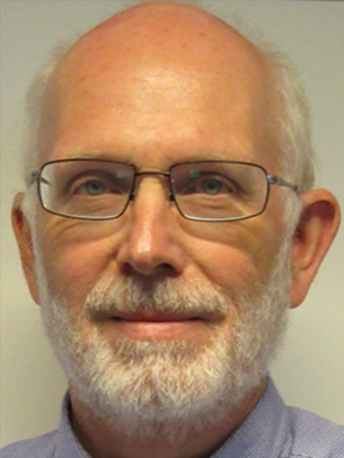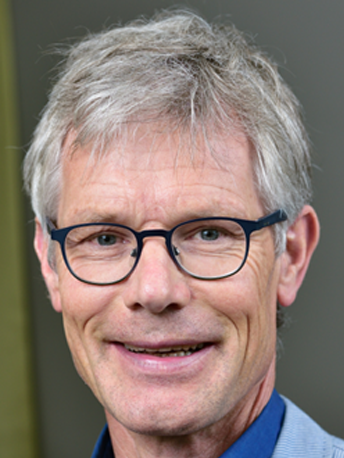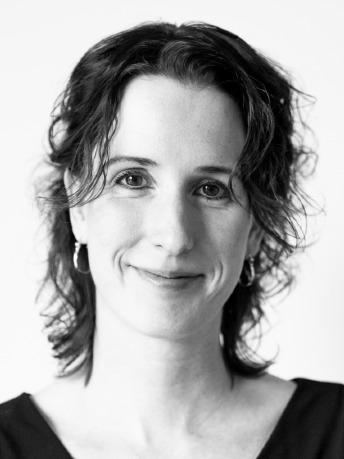Miljoenen voor onderzoek naar erfgoed en stress bij kleine kinderen
Diverse RUG-onderzoekers zijn betrokken bij projecten die financiering hebben ontvangen in het kader van de Nationale Wetenschapsagenda. Prof. dr. Lambert Schomaker is vanuit de RUG penvoerder van het project HAICu, dat een subsidie van 10,3 miljoen euro ontvangt. Hierin werken AI- en Digital Humanities-onderzoekers samen met erfgoedprofessionals en geïnteresseerde burgers aan wetenschappelijke doorbraken om grootschalige digitale erfgoedcollecties te ontsluiten, te koppelen en te analyseren. Prof. dr. Menno Reijneveld is vanuit het UMCG penvoerder van het project HEALS Applied dat 2,6 miljoen euro ontvangt. HEALS Applied heeft als doel stress bij jonge kinderen vroeg op te sporen en waar nodig ouders te ondersteunen en draagt daarmee bij aan gezond en veilig opgroeien van kinderen.
NWO financiert onderzoek in het kader van de Nationale Wetenschapsagenda (NWA). In deze jaarlijkse financieringsronde van NWA-ORC (Nationale Wetenschapsagenda - Onderzoek op Routes door Consortia) kunnen consortia aanvragen indienen die gezamenlijk uitdrukking geven aan de breedte en het vernieuwende karakter van de Nationale Wetenschapsagenda.

HAICu: digital Humanities - Artificial Intelligence - Cultural heritage
Prof. dr. L.R.B. Schomaker
In het HAICu-project werken AI- en Digital Humanities-onderzoekers samen met erfgoedprofessionals en geïnteresseerde burgers aan wetenschappelijke doorbraken om grootschalige multimodale digitale erfgoedcollecties in context te ontsluiten, te koppelen en te analyseren. De uitzonderlijke uitdagingen van het cultureel erfgoed bieden een unieke kans om de grenzen van AI te verleggen. Toekomstige technieken moeten buiten het laboratorium gebruikt kunnen worden, leren van zo min mogelijk voorbeelden en continu leren van gebruikers. Deze technieken moeten rekening houden met de maatschappelijke vraag naar verantwoorde en verklaarbare methoden voor het maken van multimodale verhalen over ons cultureel erfgoed die verder reiken dan de huidige grote taalmodellen.

Healthy EArly Life Start (HEALS) Applied: optimizing opportunities to reduce early life stress and its adverse effects in routine preventive healthcare in the first 1000 days of life
Prof.dr. S.A. Reijneveld
Veel stress in de eerste 1000 dagen, vanaf zwangerschap tot en met 2 jaar, kan levenslang schadelijk zijn. HEALS Applied heeft als doel stress bij jonge kinderen vroeg op te sporen en waar nodig ouders te ondersteunen. HEALS Applied combineert excellente kennis over stress met de uitstekende Nederlandse preventieve zorg tijdens zwangerschap en op consultatiebureaus, en ontwikkelt nieuwe methoden om schadelijke stress vroeg op te sporen. HEALS Applied draagt daarmee bij aan Gezond en veilig opgroeien van kinderen, en levert nieuwe kennis over stress; over sensoren en biomarkers; over beter ondersteunen van ouders; en over toepassen in preventieve zorg.
Daarnaast zijn onderzoekers van de RUG als consortium-deelnemer betrokken bij de volgende onderzoeken.

Floating Future
Hoe kunnen we ons dichtbevolkte land leefbaar houden? Er is toenemende vraag naar ruimte voor wonen, industrie, energietransitie en voedselproductie. Zo’n 60% van ons land is nu al kwetsbaar voor overstromingen, en door klimaatverandering vormen zeespiegelstijging en rivier afvoeren een toenemende bedreiging. Maar behalve risico’s, biedt het water ook kansen voor nieuwe vormen van veilig ruimtegebruik: grootschalig drijvend bouwen. Het onderzoeksprogramma “Floating Future” onderzoekt vanuit governance, technologie en ecologie hoe we drijvend bouwen op grote schaal mogelijk kunnen maken en wat de sociale acceptatie hiervan is. We ontwikkelen drijvende klimaatadaptieve perspectieven voor het binnenland (IJmeer), havensteden en de Noordzee.
Dr. M.A. van den Brink werkt als projectleider bij Floating Futures
ECOTIP: identifying tipping points of the effects of living environments on the ecosyndemics of lifestyle-related illness
Een ecosyndemie wordt gekenmerkt door ongunstige ziekte-interacties die het gevolg zijn van een ongezonde leefomgeving. Ons doel is om kantelpunten te identificeren waar de weerbaarheid van de bevolking ten opzichte van een ongunstige leefomgeving achteruitgaat en zich ontwikkelt tot een ecosyndemie, en om de optimale condities en het moment vast te stellen voor effectieve interventies vanuit het perspectief van beleidsmakers, zorgprofessionals en burgers. Dit doen we door geavanceerde data-analyse van historische gegevens over indicatoren van de leefomgeving en weerbaarheid, en deze bevindingen te vertalen in haalbare maatregelen voor beleidsmakers, zorgprofessionals en burgers, in samenwerking met leernetwerk van belanghebbenden.
“It's a cargo match!...” Attaining waste-free and effective freight transport systems by seamlessly matching - demand and supply with inclusive, smart, and green-oriented booking platforms
Het maatschappelijk draagvlak voor de externe effecten en uitbreiding van het transportsysteem neemt af. De huidige aanpak voor transportoptimalisatie, marktstructuur en governance van de keten leiden onvoldoende tot het optimaal benutten van de beschikbare capaciteit in transportnetwerken. De platformeconomie biedt kansen om vraag- en aanbod in transportnetwerken beter op elkaar af te stemmen, maar heeft ook risico’s als een platformaanbieder zelf te dominant wordt. In dit project ontwikkelen we de generieke functionaliteit en randvoorwaarden voor online platforms voor het samenstellen en boeken van diensten die zijn opgebouwd uit diensten van meerdere aanbieders, en passen die toe op intermodale transportnetwerken.
HybridLabs - Accelerating Dutch innovations in offshore renewables through data-driven hybrid labs
HybridLabs versnelt de energietransitie door de ontwikkeling van hernieuwbare offshore technologieën voor elektriciteits- als waterstofproductie. HybridLabs versterkt tegelijkertijd de offshore voedsel- en ecologische transitie. HybridLabs leidt tot een sterke positie voor de Nederlandse kennis- en innovatieketen en creëert daarnaast belangrijke commercialisatiemogelijkheden voor drijvende windenergie langs de Ierse Atlantische kust. De kern van HybridLabs is een unieke Nederlandse infrastructuur van hybride experimentele faciliteiten, simulatoren en offshore demonstratielocaties, die van elkaar leren door middel van nieuwe data- en fysicagestuurde benaderingen. Door de hybride infrastructuur vindt technologieontwikkeling sneller en goedkoper plaats. Kennisexploitatie vindt plaats richting het bedrijfsleven, beleidsmakers, ngo's en burgers.
Meer nieuws
-
17 februari 2026
De lange zoektocht naar nieuwe fysica
-
10 februari 2026
Waarom slechts een klein aantal planeten geschikt is voor leven
